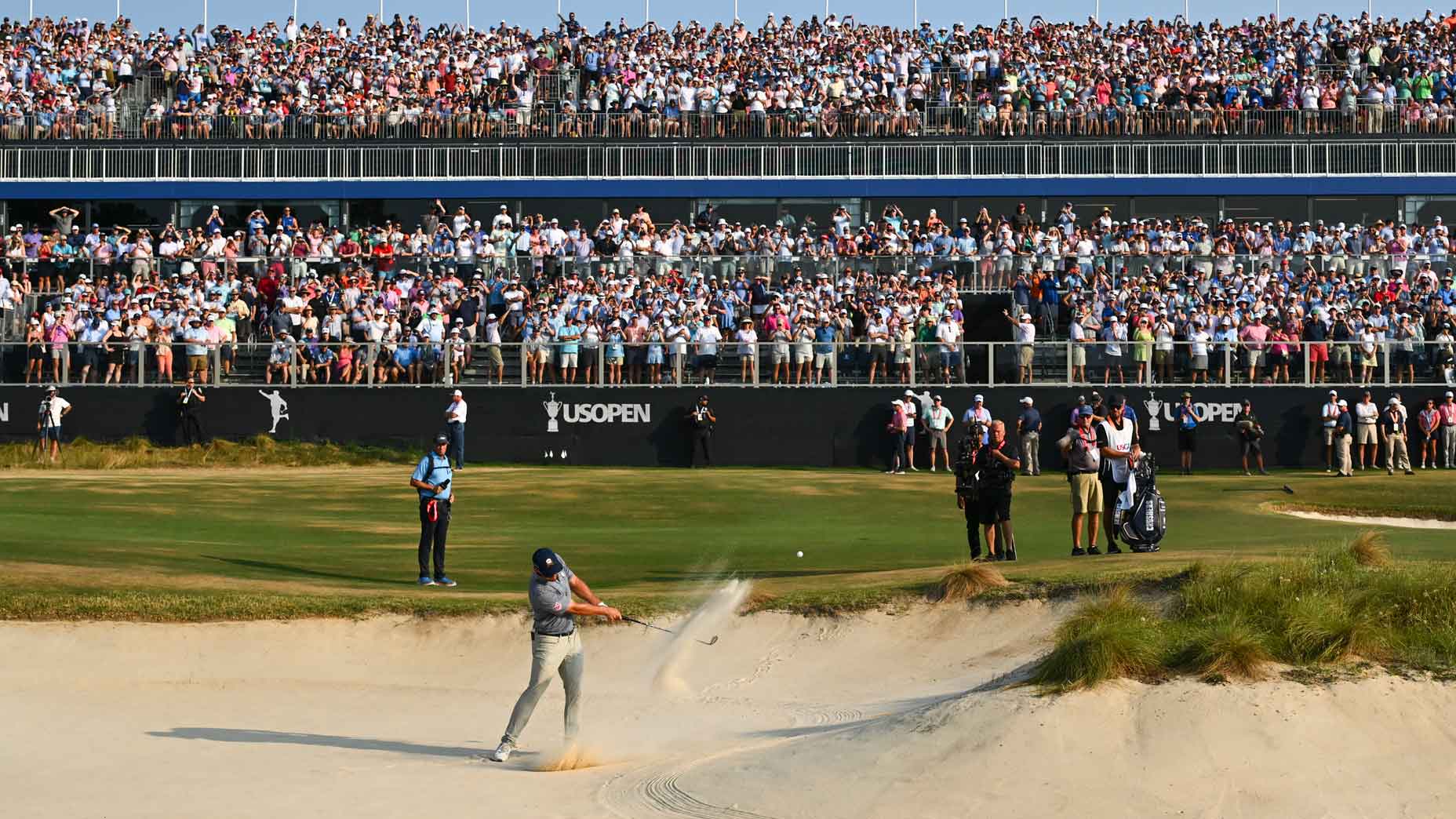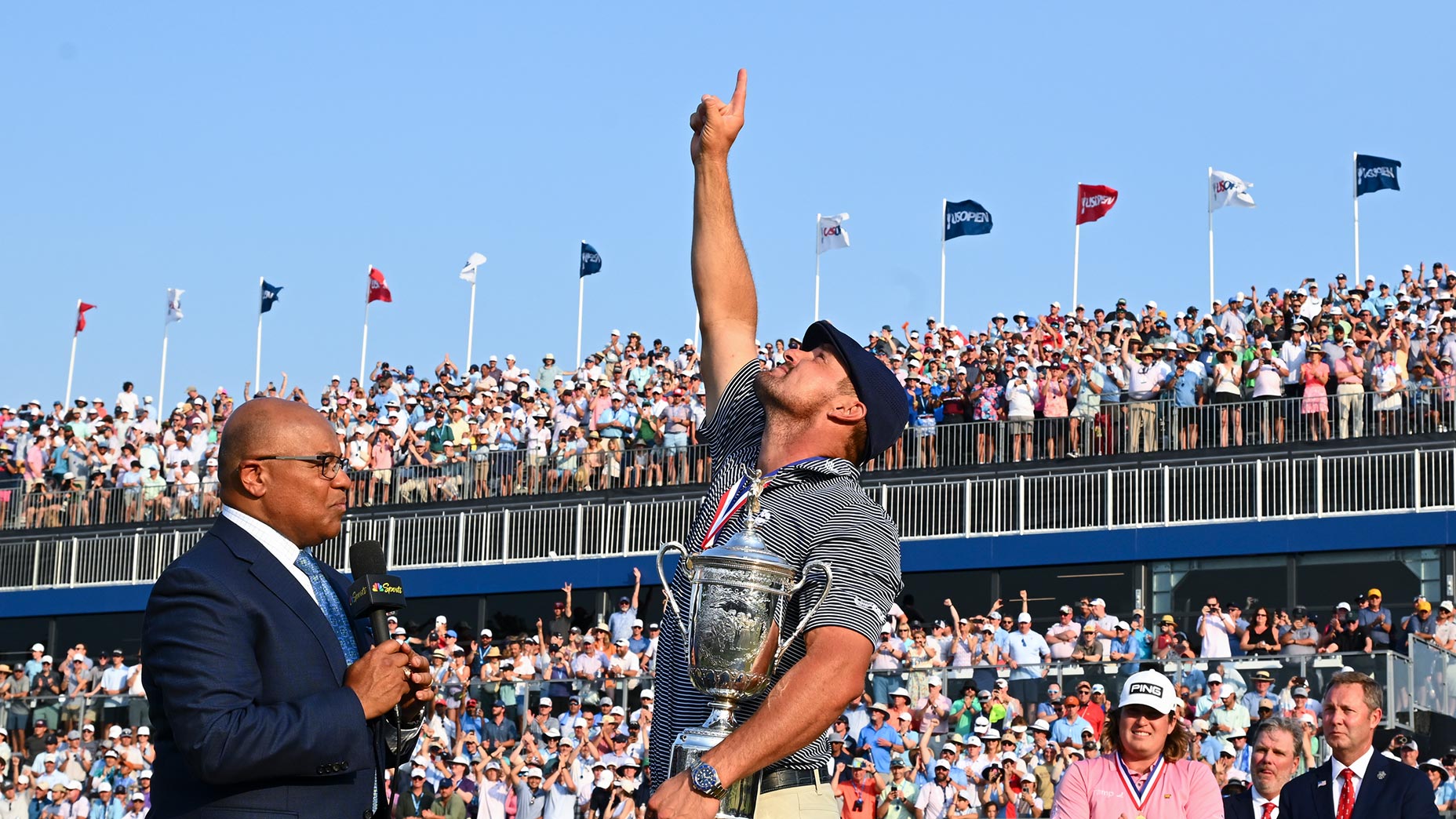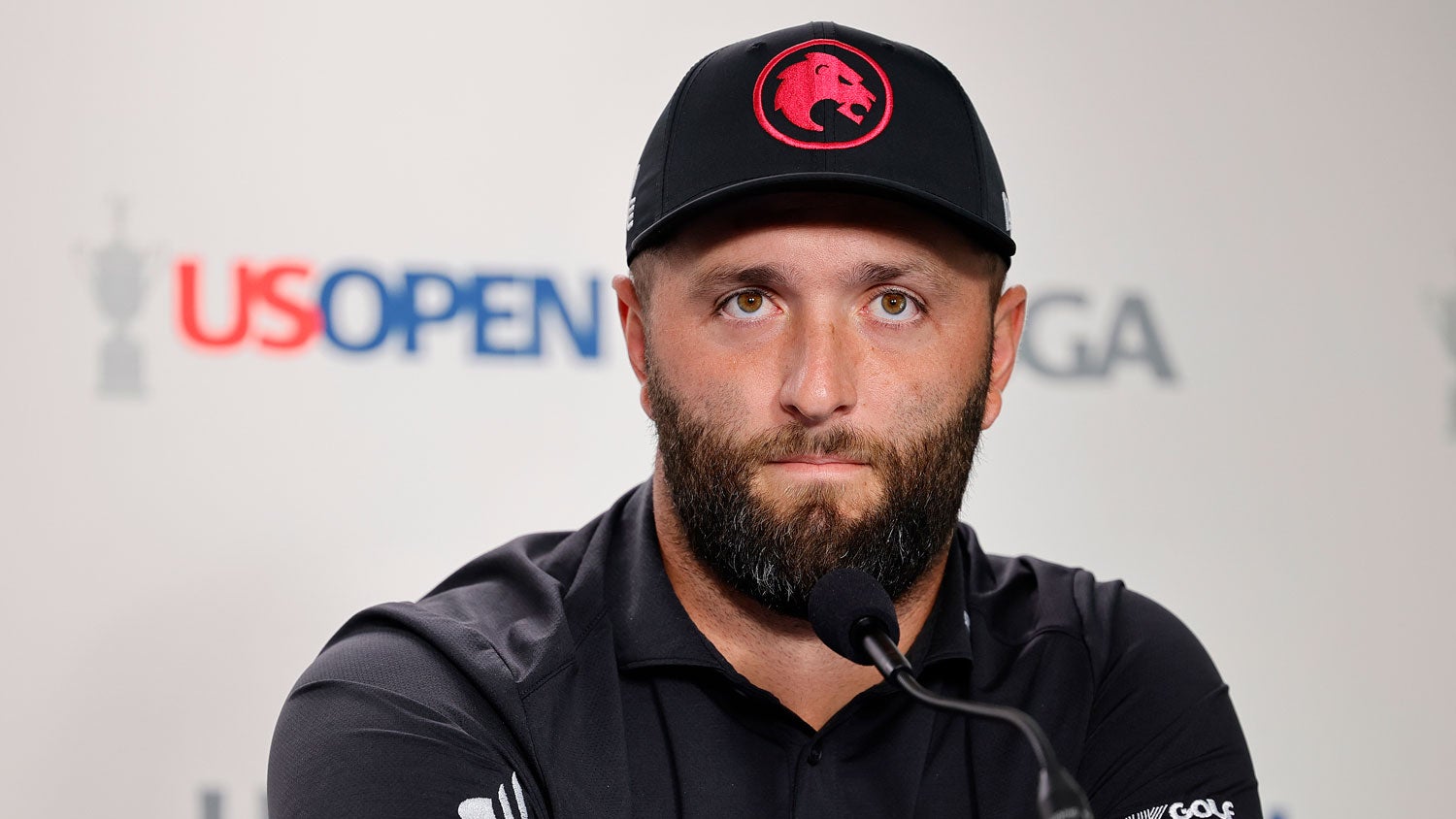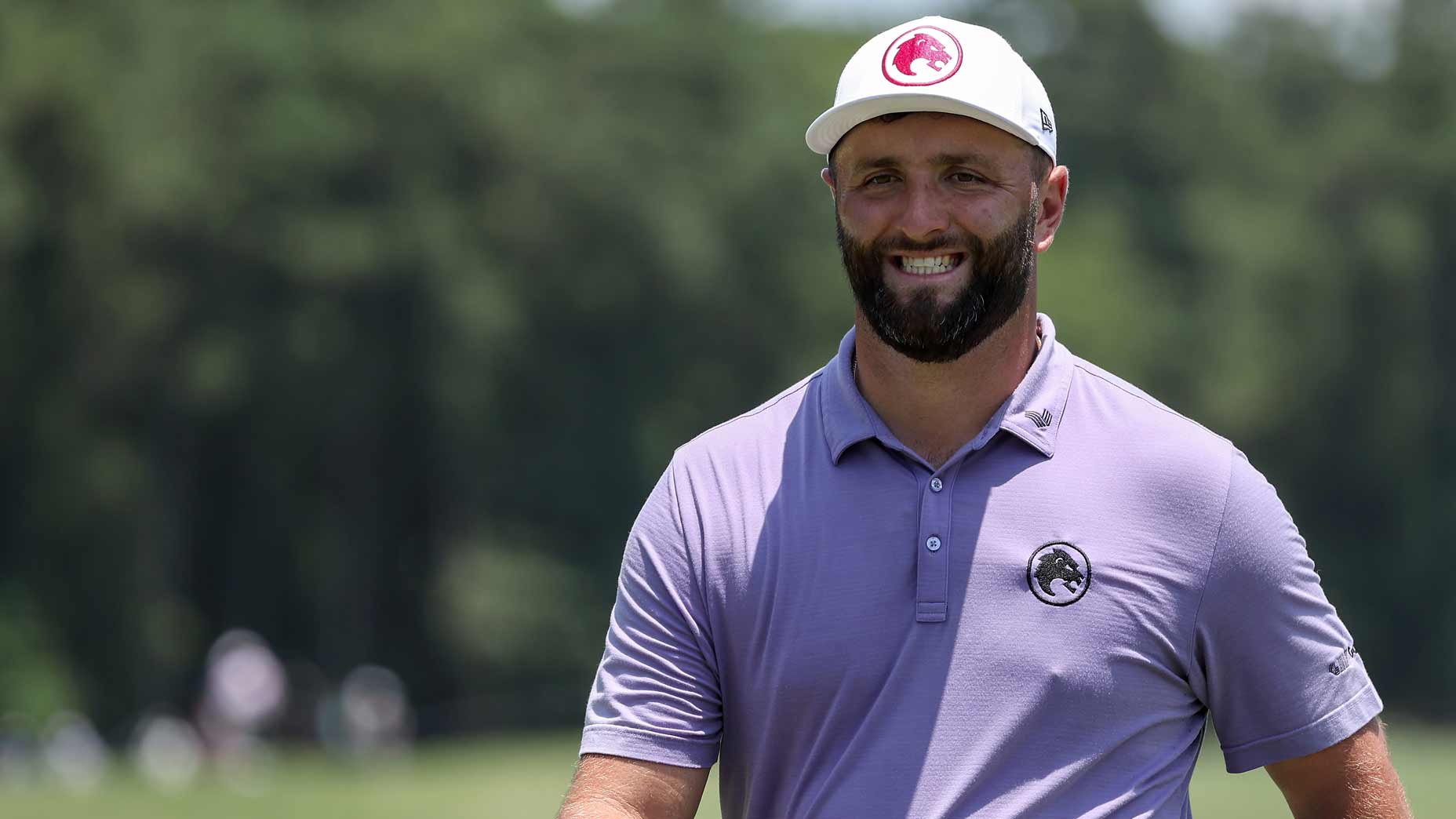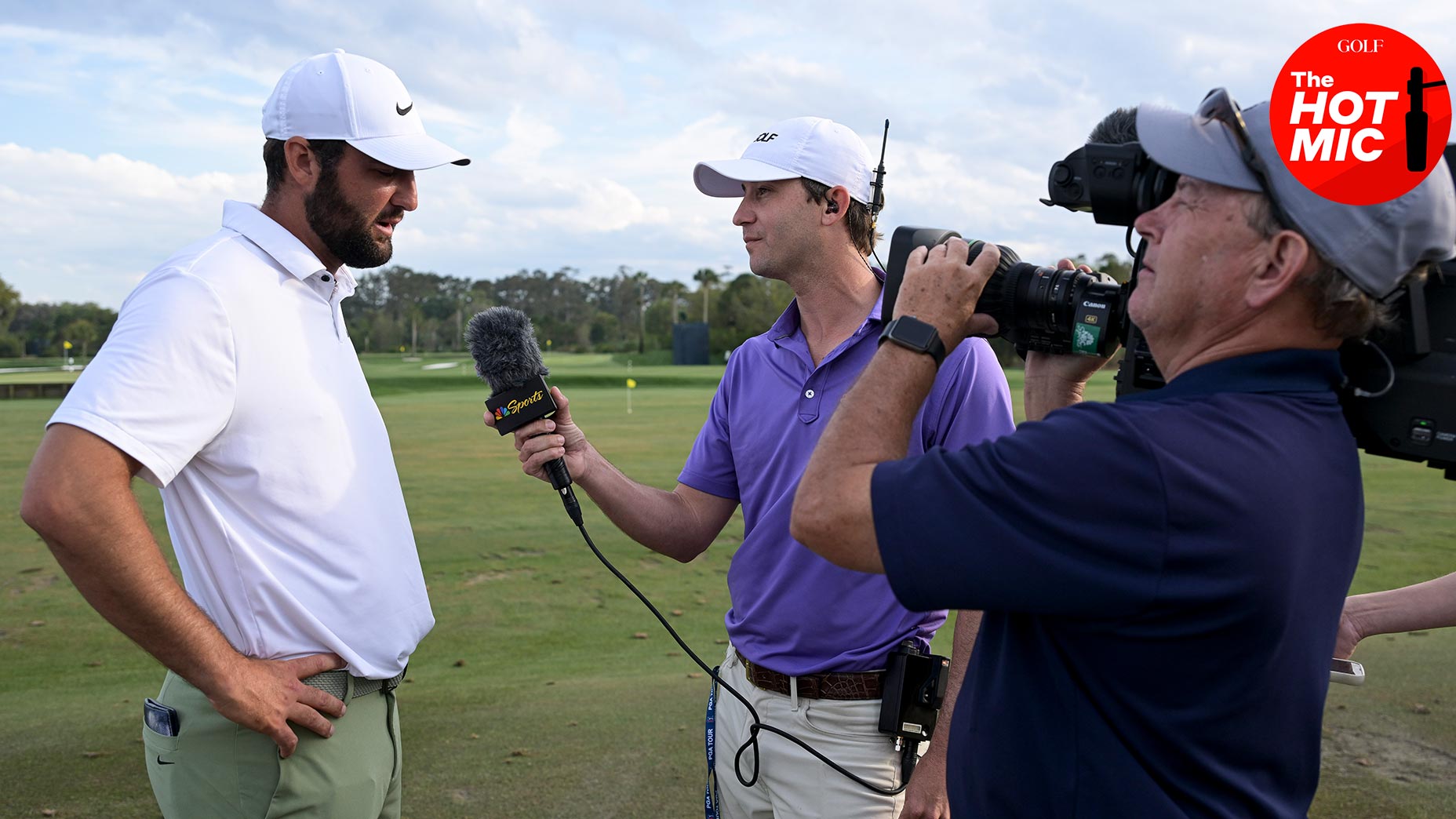LIV Golf lands a surprising new TV partner
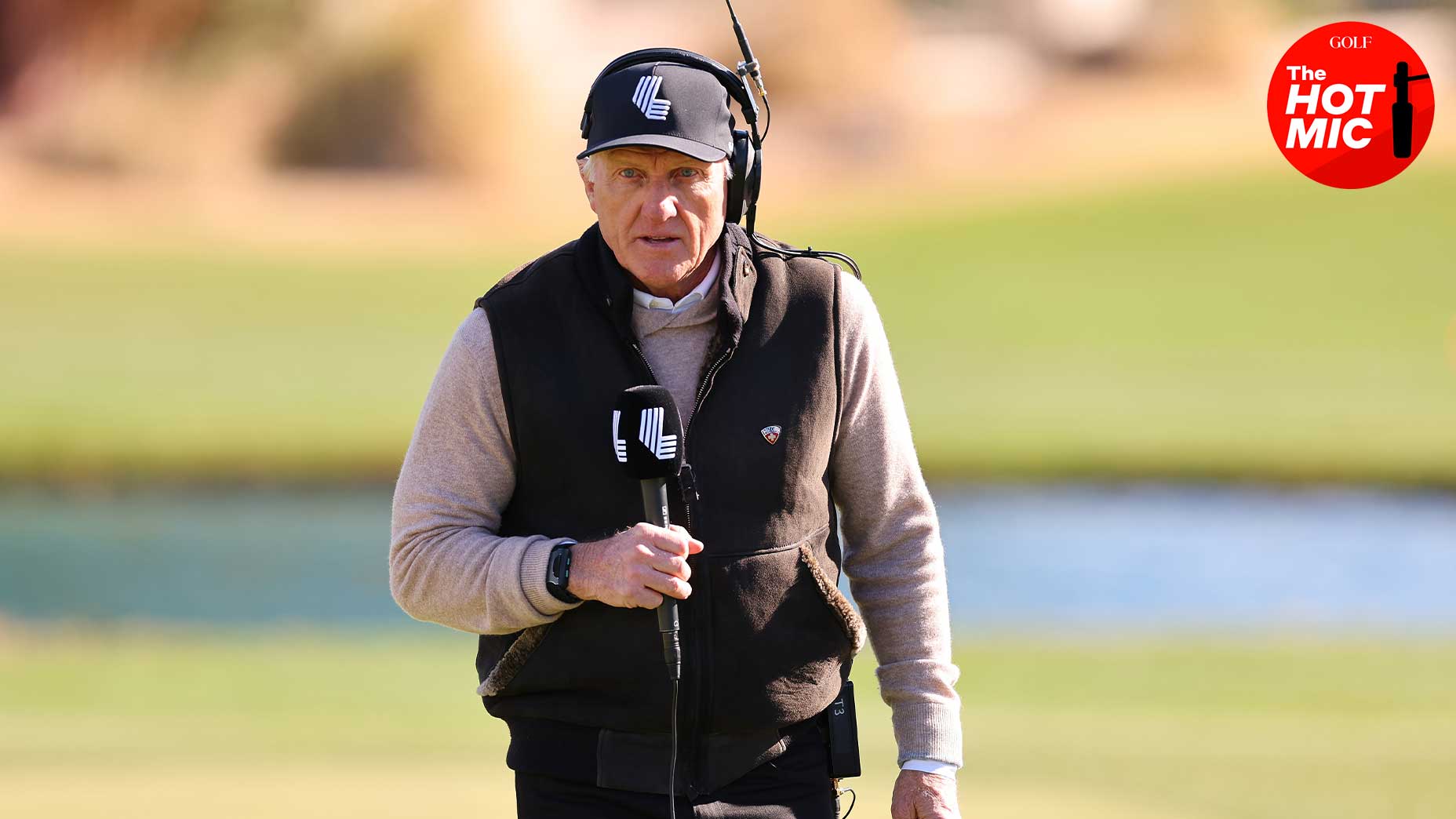
Greg Norman's LIV Golf landed a new TV rights partner: Caffeine.
Getty Images
On Tuesday morning, LIV Golf announced an agreement with the U.S.-based streaming partner Caffeine to carry the league’s Friday tournament coverage through at least the rest of the year. Below is an extended sampling from GOLF’s Hot Mic Newsletter on the agreement. To receive exclusive golf media updates like this one from me, James Colgan, click the link here or the tab below to subscribe.
COFFEE GOLF
If the name “Caffeine TV” means nothing to you … well, you’re not alone. To the outside eye, it’s tempting to view Tuesday’s announcement as a half-measure of last year’s semi-disappointing weekend broadcast agreement with the CW. Just as last time, LIV touted months of “negotiations” with interested buyers before it wound up settling on an unheralded partner with little name value as a sports broadcasting entity. And just as last time, the league struck out with the creme de la creme of the sports TV world.
While LIV surely would have preferred a multi-year agreement with a glitzy sports streamer like Amazon or Apple, the Caffeine deal has a few things to like for the upstart league — even if it still leaves a few major questions unanswered.
TGIF
At the simplest level, the Caffeine deal is important because it shores up LIV’s “Friday problem”: The league has not had a TV rights partnership for its Friday tournament coverage since inception, meaning one-third of its tournaments have gone unsold from a media rights standpoint. In a sports landscape where leagues make the majority of their cash from TV rights deals, giving away Friday for free on the LIV Golf app and for a nominal subscription fee on YouTube just wasn’t financially sustainable.
The good news is that those days are now over. Even if the Caffeine deal nets pennies on the dollar for LIV, it’s still pennies more than the league had last year. (And the league could still sign a Friday linear TV partner.)
The bad news is that it’s not clear how much the Caffeine deal changes LIV’s perception. Landing any sort of agreement is good for optics, but considering the deal marks another failure to penetrate the billion-dollar budgets of legacy providers (and came two events into the new season), it still smells a bit like desperation.
WHO???
It’s probably not the best news for LIV that this golf media reporter had never heard of Caffeine prior to Tuesday morning, but after some digging, the intel I’ve gathered is mostly sensible for the upstarts:
- Caffeine was originally positioned as a live-gaming competitor to Twitch, but was quickly tossed out of the arena as Twitch became a monolith. In the years since, the platform has pivoted into carrying “niche and emerging” sports properties, picking up the scraps of properties that legacy networks like ESPN no longer have the free cash to air and scooping the small but rabid pockets of audience that come with them.
- The platform’s blitz-scaling effort has yielded a bunch of smaller live sports properties (bowling, the X Games, surfing, various low-level MMA leagues, and something called the North Europe Basketball League, among others) and sports content creators (TMZ Sports and Barstool are two of the biggest).
- Caffeine’s website boasts 60 million “monthly active users” — up BIG from a year ago — and claims revenue has grown tenfold over the last six months. (It has not released revenue data publicly.)
- Like Twitch or YouTube, the platform looks more like a social media network than a traditional cable channel or streamer — theoretically key for engaging with a younger demographic. Fittingly, Caffeine claims to have one of the youngest sports-watching audiences in the world, with some 82 percent of its viewers under the age of 35. Notably, it is also free to use.
- Fully anecdotal: The tech seems relatively crisp and clean, but even after disabling my browser’s ad blocker on Tuesday morning, I was unable to pull up a working stream. (Maybe I’m just getting old.)
BIG GUNS
Caffeine launched in 2018 after a $150 million seed round from Fox’s Murdoch family and VC giants Andreessen Horowitz. Today, Fox chairman Lachlan Murdoch holds a seat on the Caffeine board along with media giants Disney and Cox Communications. Sure, every buzzy media startup attracts the investment attention of wary legacy counterparts — but the Murdoch family ties here feel significant, considering the family’s long-standing relationship with LIV commissioner Greg Norman. And hey, it probably doesn’t hurt LIV’s long-term broadcast prospects to share a boardroom with Bob Iger.
LIV ON TV
LIV’s press release touts a few big victories for the league’s viewership: growth of 77 and 60 percent, respectively, in average TV audience for the first two tournaments of the year on the CW. Those numbers are nowhere near the PGA Tour’s product (a comparison of a few hundred-thousand viewers to a few million), but make no mistake, they’re a considerable victory for LIV, which is betting on viewership growth as it navigates a new batch of U.S. TV deals at the end of the 2024 season.
MONEY TALKS
It’s easy to see why Caffeine is valuable to LIV: It boasts a large audience of highly engaged young users. But the biggest question in the billion-dollar age of sports rights remains unanswered: how can Caffeine drive value (the multimillion-dollar TV rights deal kind) for LIV?
If we’re spitballing, there are two ways of forecasting the situation: first, that Greg Norman’s old friends (the Murdochs) are using their levers of power to throw LIV a bone with Caffeine; and second, that Fox could be clearing the decks to make a run at LIV’s full rights for 2025. We’ll find out soon enough…





